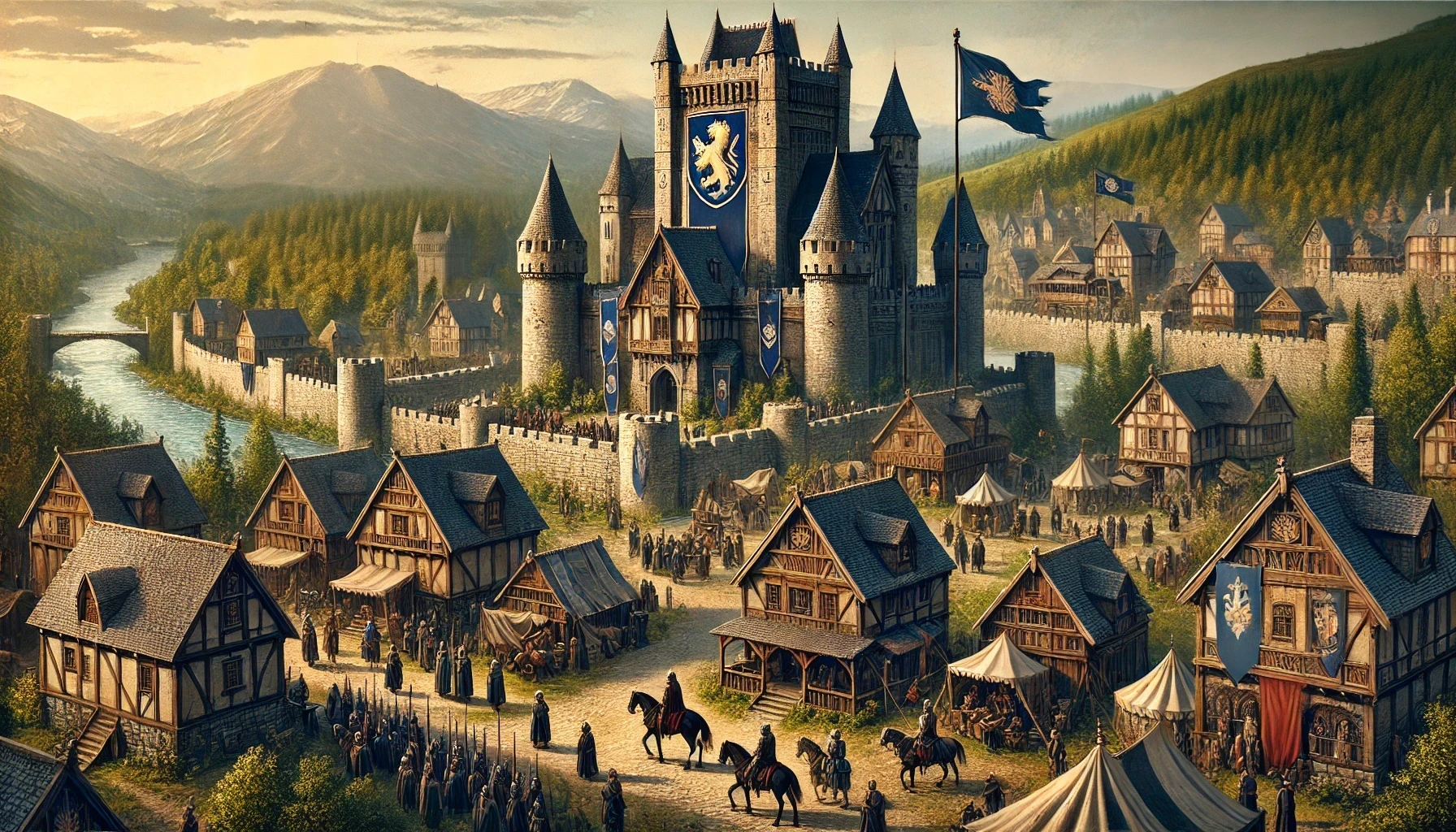
Rise of the Northern Kingdom
Cultural event
Over the course of several centuries, the settlements of the new continent continued to grow and expand. The settlers' knowledge, refined through generations of survival and innovation, blossomed into a network of thriving communities that spanned the northern part of the continent. It was inevitable that a new kingdom one day would emerge. And so, King Elandar I of House Greymoor established the Kingdom of Riverhold.
Just as trees in a forest compete for sunlight, so too did these human settlements. However, rather than turning against one another, the leaders of these communities began to form alliances. They understood the strength in unity, especially as they continued to uncover traces of a mysterious ancient civilization that once dwelled in their lands. The city of Riverhold, positioned favorably near two mayor rivers and downstream from many valuable mineral deposits, saw a period of prosperity unparalleled by its neighbors. Its wealth, derived from its strategic position allowing control over the transport of valuable resources, attracted many settlers. Riverhold became a beacon of trade and innovation, its influence expanding over time. From House Greymoor, known for its keen diplomatic strategies and immense wealth, came King Elandar I, who first managed merge to various tribes and settlements into one cohesive kingdom. Although some settlements fiercely resisted the idea of a centralized power, King Elandar I used a combination of diplomacy and military strength to pacify these pockets of resistance. The Kingdom of Riverhold, as it was named, became the dominant political entity in the region. Its rule brought economic prosperity, cultural growth, and military security. The kingdom established a rule of law, a standardized currency, and fostered a cultural identity that was distinctly human. Nevertheless, not all communities joined the new kingdom. In the remote north and the vast western regions, independent villages and towns persisted. These settlements, while acknowledging the kingdom's sovereignty, preferred their isolation and independence. They continued to live in harmony with the land, much like their ancestors who first set foot on the continent. Over time, these once-disparate settlements began to form a shared identity. They saw themselves as not just survivors, but pioneers and custodians of a new era of human civilization. They were no longer merely inhabitants of the new continent, they were its guardians. As the Kingdom of Riverhold continued to grow, so too did the resolve of these free communities to maintain their way of life. Previous event
